Immunopaedia Ambassadors – North America
Our Ambassadors from across Northern America.
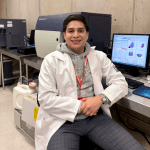 What is your name?
What is your name?
Farid Olalde Rodríguez
What is your current position?
MD Student
Which institute and country do you work in?
Laboratory of Molecular and Translational Medicine, Centro de Investigación en Ciencias de la Salud y Biomedicina UASLP
What is your home country?
Mexico
What are your research interests?
Immunometabolism, bioinformatics, cellular signaling
Tell us about yourself and your research interests:
I began researching during my undergraduate studies with projects related to the biomedical field. I am currently pursuing a Master’s degree in Biomedical Sciences at the Autonomous University of San Luis Potosí, Mexico, where our research group is studying macrophages that are abundant in the adipose tissue of obese individuals and potentially contribute to the development of diseases such as type 2 diabetes mellitus. In order to understand the role they play in this condition, I am developing skills in flow cytometry, PCR, and bioinformatics, which improve the efficiency of data collection and results.
One of my main commitments is the dissemination of science and combating misinformation.
What are your online profiles?
LinkedIn: Farid Olalde Rodríguez
Immunology Keywords:
Metabolism, macrophages, cardiometabolic diseases
 What is your name?
What is your name?
Aquiles R. Ocaña-Guzman
What is your current position?
Postdoctoral Fellow
Which institute and country do you work in?
School of Public Health, Univertisty of Texas at Houston Center (UT-Health Houston)
What is your home country?
Mexico
What are your research interests?
Immunology, Tuberculosis, Immune regulation
Tell us about yourself and your research interests:
As a Medical Sciences Researcher at the National Institute of Respiratory Diseases, Mexico City, I am part of the Integrative Immunology Laboratory, focusing on immunity in respiratory infectious diseases (Tuberculosis, COVID-19, HIV) and non-infectious pathologies (hypersensitivity pneumonitis, idiopathic pulmonary fibrosis). I hold a Bachelor’s in Pharmaceutical Biological Chemistry from Metropolitan Autonomous University and a Master’s and PhD in Biological Sciences from UNAM, specializing in Biomedicine and immune regulation in human cells.
I am currently a Postdoctoral Fellow at School of Public Health, University of Texas Health Science Center at Houston (UTHealth), where my research explores factors that affect the immune response to tuberculosis, including diabetes, oxidative stress, and aging. My passion for teaching and my commitment to academic excellence drive me to support and mentor the next generation of scientists and physicians form UNAM and Anahuac University in Mexico, fostering innovation in the classroom and laboratory.
In 2015, I received the Bill and Melinda Gates Foundation Young Investigator Award for my work on the inhibitory receptor TIM-3 in innate immune cells. I am also a member of the Mexican Society of Immunology and the Mexican Network for Tuberculosis Research.
What are your online profiles?
LinkedIn: Ranferi Ocana Guzman
ResearchGate: Ranferi Ocana
Immunology Keywords:
Immune-regulation, TB-Infection, Chronic-activation
 What is your name?
What is your name?
Zi Yan Chen
What is your current position?
PhD student
Which institute and country do you work in?
Department of Immunology, University of Toronto
What is your home country?
Canada
What are your research interests?
Autoimmunity, Myelopoiesis, Developmental biology
Tell us about yourself and your research interests:
Immunology has always fascinated me as a “double-edged weapon”: it acts as a defense system, but it also can be self-destructive when uncontrolled. My journey into Immunology initiated with my BSc studies at the University of Toronto, specializing in Immunology. It was there where I first learned and became curious about autoimmunity. This led me to complete my MSc thesis under the supervision of Dr. Heyu Ni, where I studied the pathogenesis of a life-threatening disease called fetal and neonatal alloimmune thrombocytopenia and the consequences of the maternal immune response against fetal antigens on fetus survival and development. I am currently completing my PhD studies, under the supervision of Dr. Arthur Mortha, where I continue along my research interests to study immune system dysfunction. My project investigates tissue macrophage developmental and functional heterogeneity under homeostatic and autoimmune disease conditions.
My passion for research is paralleled by my interests in mentorship/teaching and science communication. When I am not in the lab, I am usually working on community-focussed teaching and mentoring initiatives and various writing projects. I fully support that scientific research should be easily communicable and transparent to engage public excitement and accessibility, and therefore, strive to do my part in opening the dialogue.
What are your online profiles?
LinkedIn – Zi Yan Chen
X: @zi_chen9
Immunology Keywords:
Macrophage, Autoimmunity, Development
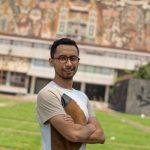 What is your name?
What is your name?
Eugenio Contreras Castillo
What is your current position?
PhD student
Which institute and country do you work in?
Cell Physiology Institute, National Auotnomous University of Mexico
What is your home country?
Mexico
What are your research interests?
Molecular mechanism regulation of T cell tolerance, biology of the thymus, neuroimminology
Tell us about yourself and your research interests:
I am a passionate student in Immunology, working with Treg and the mechanisms that govern its stability under inflammatory biology. I studied biology because I was very interested in understanding the mechanisms behind how cells work. Later I discovered Immunology and I found a field in biomedicine that required the integration of many areas of biology. I did my undergraduate thesis working with human monocytes and how they were affected by different oxygen conditions. Later I joined the Licona-Limon Lab at UNAM, to pursue my master’s and PhD studies to study how T regulatory cells maintain their identity and suppress under inflammatory conditions. I firmly believe that through education we can transform our society and that young scientist need to be heard. During the pandemic, I was the co-founder of two projects that promoted scientific discussion while giving voices to people who did the science: Public Journal Club and Open Box Sciences. Two initiatives that promoted scientific discussion free and open discussion for everyone. I am also the host of the Antibbudies podcast.
What are your online profiles?
LinkedIn – Eugenio Contreras Castillo
X – @Eugecc
Immunology Keywords:
T cell, Tolerance, Autoimmunity
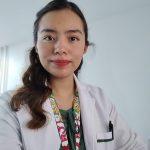 What is your name?
What is your name?
Gabriela Zamora Herrera
What is your current position?
MD Student, Physiological Sciences
Which institute and country do you work in?
Physiology Institute, Benemérita Universidad Autónoma de Puebla. Oncoimmunology and Cytomics Lab for Childhood Cancer, CIBIOR-IMSS, Mexico
What is your home country?
Mexico
What are your research interests?
Leukemia microenvironment, Bone marrow niches, Immunecontexture
Tell us about yourself and your research interests:
I became interested in biomedical research and entered into the Biomedicine program at the Benemerita Universidad Autonoma de Puebla; where I focused on scientific research in biomedical sciences and biological phenomena. I then joined the Oncoimmunology and Cytomics Laboratory (CIBIOR IMSS), where my area of research focuses on leukemia tumor microenvironment, considering onco-hematological diseases as the sum of macro and micro environmental processes. As part of the necessary tools to address this problem, I am constantly training in area of cytometry, especially in the handling of flow cytometry, cell sorting and recently with mass cytometry. Currently, as a graduate student, I am working on predictive scores for pediatric Acute Lymphoblastic Leukemia prognosis, based on bone marrow mesenchymal stromal immunophenotyping, tumor identity and immunecontexture. Our group’s main focus is leukemia pediatric patients in Mexico.
What are your online profiles?
ResearchGate – Gabriela Zamora-Herrera
LinkedIn – Gabriela Zamora
Immunology Keywords:
Immunomodulation, Inflammation, Oncoimmunology
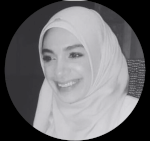 What is your name?
What is your name?
Nour Ramadan
What is your current position?
Scientist
Which institute and country do you work in?
Abbott Point of Care / Adecco, Canada
What is your home country?
Canada
What are your research interests?
Mucosal immunity, immune-assay development, proteins
Tell us about yourself and your research interests:
My research interest include innovative and product development (particularly I have experience in medical diagnostics and nanoparticle vaccines design and development). My interest also include the intertwining of immunology and microbiology and understand the host-pathogen interactions.
What are your online profiles?
ResearchGate – Nour Ramadan
LinkedIn – Nour Ramadan
Immunology Keywords:
Mucosal immunity, immuno-assay, vaccines
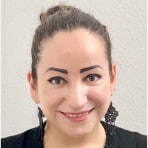 What is your name?
What is your name?
Maria Berenice Martinez Salazar
What is your current position?
Advanced Postdoc
Which institute and country do you work in?
Department for BioMedical Research, University of Bern, Switzerland
What is your home country?
Mexico
What are your research interests?
Vascular inflammation, neutrophils, long-COVID
Tell us about yourself and your research interests:
I started my research very early during my bachelor’s. I studied the immune response to Leishmania parasites. My thesis defense was about the TLR9 activation with DNA from Leishmania that leads to the production of inflammatory cytokines. My work was awarded the best bachelor’s Thesis of 2015-2016 by the Faculty of Medicine of the UNAM (National University autonomous of Mexico). I did my PhD in the regulation of T cells through PD1 in mice infected with Leishmania Mexicana in an animal model to assess vaccine efficiency. Then, I was granted the Postdoctoral Fellowship Arturo Falaschi from the ICGEB and worked under the supervision of Prof. Frank Brombacher. I studied the immune response to Leishmania in mice that lack the IL-4 receptor alpha (IL-4Ra) and in specific cells that lack that receptor. I moved to Lausanne to work in the WHO-Immunology Research and Training Center (IRTC) under the supervision of Prof. Fabienne Tacchini-Cottier. During my time there, I analysed the response of Neutrophils to Leishmania assessing the microbicidal mechanisms activated. I am currently working as Advanced Postdoc in the University of Bern analysing the role of vascular inflammation in the development of Long COVID-19 under the supervision of Prof. Yvonne Döring.
What are your online profiles?
ResearchGate – Berenice Martinez
LinkedIn – Berenice Martinez Salazar
Immunology Keywords:
Neutrophils, Inflammation, Cytokine storm
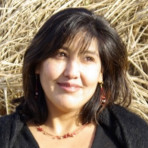 What is your name?
What is your name?
Yanet Valdez Tejeira
What is your current position?
Immunologist
Which institute and country do you work in?
Independent Consultant
What is your home country?
Canada
What are your research interests?
Mucosal Immunology, mechanisms of disease and infectious diseases
Tell us about yourself and your research interests:
After obtaining my PhD, my career path continued in the area of immunology. After post- doctoral training, I accepted a position as Senior Scientist at StemCell Technologies Inc. and become a Team lead for the Innate Immunology group in the Cell Separation team, designing reagents for the isolation of human and murine cells from blood and other organs.
1. Scientific Communication. I had the opportunity to travel to Benin, West Africa, to teach immunology together with the “Immunology Without Borders” faculty chapter of the IUIS. This was an extraordinary experience for me and reinforced my passion for communicating concepts in Immunology to trainees. I recently founded @ImmunolatinXs (https://twitter.com/ImmunoLatinXs) a platform aimed at bringing together immunologists from Latin America and collaborating with other immunologists around the world.
2. Teaching. I became an invited faculty member at my alma mater Cayetano Heredia Peruvian University (Lima-Peru). There I teach immunology virtually to graduate student and MD’s seeking a formal education in immunology.
3. Advocacy. Three years ago, I nearly lost my daughter to an autoimmune disease (anti-NMDA Receptor autoimmune encephalitis or “brain on fire” disease). This rare disease was very difficult to diagnose, however my family and I had the privilege of being well-educated biomedical researchers and, fortunately, could diagnose my daughter’s disease rapidly, seek immediate treatment and see her through her road to complete recovery. As such, we gained a first-hand appreciation for how patient education and understanding of immunology can save lives. Now, I serve as part of the Board of Directors for the NMDAE Foundation: https://www.antinmdafoundation.org/who-we- are/scientific-advisory-board. I am also an active volunteer for the American Association for Immunologists, where I served on panels to mentor immunologists in industry.
What are your online profiles?
LinkedIn – Yanet Valdez Tejeira
Immunology Keywords: Mucosal Immunology, Innate immunology and Dendritic cells
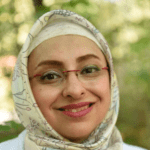 What is your name?
What is your name?
Avid Mohammadi
What is your current position?
PhD candidate
Which institute and country do you work in?
University of Toronto
What is your home country?
Canada
What are your research interests?
Mucosal immunology, HIV, The role of microbiota in modulating immune responses
Tell us about yourself and your research interests:
I hold a Master degree in Virology from Iran University of Medical Sciences, Tehran, Iran. I have worked for two years in the field of HIV in Keyvan virology lab which is the reference virology lab in Tehran. During this period, I had the opportunity to understand the burdens of reducing HIV transmission in Iran. As a graduate student involved with HIV/AIDS issues, I was always concerned about finding prevention strategies to reduce HIV transmission. In Iran, drug injection and sexual transmission are two main routes of HIV transmission. However, it was difficult to study how HIV-sexual transmission could be reduced, since sex and HIV sexual transmission is a stigma in the Iranian community. This was the main reason that I joined Dr. Kaul’s lab, University of Toronto as a PhD student in 2015, where the main focus is the genital immune correlates of HIV-transmission and susceptibility. Dr. Kaul has extensive experience on HIV transmission and immune correlates of HIV susceptibility, studying for more than 20 years in Canada, Uganda and Kenya. Since joining his lab, I enhanced my knowledge on HIV, Immunology, how to perform clinical trials, the ethics in research and new techniques such as flow cytometry.
What are your online profiles?
ResearchGate
Immunology Keywords: Inflammation, Th17 cells, neutrophils
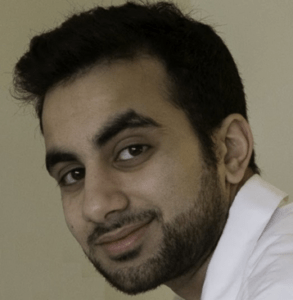 What is your name?
What is your name?
Sohail Hassan Mahmood
What is your current position?
Director & CEO, Living In Silico Inc.
Which institute and country do you work in?
Sheridan College, Canada
What is your home country?
Canada
What are your research interests?
Simulations, drug discovery, ILCs
Tell us about yourself and your research interests:
We (Living in Silico Inc.) are interested in determining novel drugs using protein-protein simulation. We are building an immunological identity with drug production that allows for specific immunotherapies based on specific immune cell behaviour in disease states. One aspect would be polarization of cells, based on various stimuli, innate immune cells can orchestrate later adaptive responses. If a specific APC becomes differentiated to prevent influx of cells it would be anti-inflammatory and if promoting inflammation it would be inflammatory.
We would like to extend the idea further of APC polarization and the behavioural changes leading to massive changes in immune responses to alter responses to stimuli such as in tumour microenvironment where vascular changes diminishing can lead to tumour size decreases. We hope to achieve these goals by understanding the mechanisms of the microenvironment to maintain growth and cancerous growth and target specific behaviours rather than general chemo and immunotherapies.
What are your online profiles?
LinkedIn: Sohail Hassan Mahmood
Immunology Keywords: Immunotherapies, Simulations, ILCs
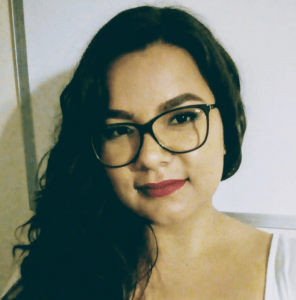 What is your name?
What is your name?
Lucinda del Carmen Puebla Clark
What is your current position?
PhD student
Which institute and country do you work in?
I am currently a student at Universidad de Sonora in Mexico in the program « Doctorado en Ciencias (Químico Biológicas y de la Salud) »
What is your home country?
Mexico
What are your research interests?
Dendritic cells, Innate response to viruses, Veterinary immunology
Tell us about yourself and your research interests:
I am currently working with porcine dendritic cells and their response to the Porcine Reproductive and Respiratory Syndrome Virus. During the time we have been working with porcine dendritic cells, we have learned that porcine and human immune cells are quite alike, a personal interest for me is to actually search for similarities between species and see if porcine dendritic cells could be used in cell therapy treatments.
What are your online profiles?
LinkedIn –Lucinda Puebla Clark
ResearchGate- Lucinda Puebla-Clark
Immunology Keywords: Dendritic cells, Virus, Swine
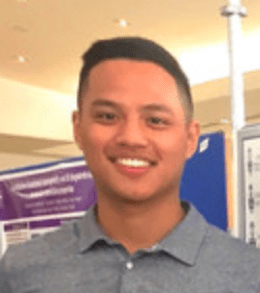 What is your name?
What is your name?
Bryan Gascon
What is your current position?
Undergraduate Researcher
Which institute and country do you work in?
University of Toronto, Canada
What is your home country?
Philippines and Canada
What are your research interests?
Medical Microbiology, Cancer Immunotherapy, Health Services Research
Tell us about yourself and your research interests:
I just finished my Honours Bachelor of Science degree at the University of Toronto, in which I double majored in Immunology and Global Health and minored in Cell and Systems Biology. Through the academic rigors of my program, I gained a deep appreciation for how the human body keeps us alive everyday. As a result, I pursued opportunities in a variety of labs related to key cornerstones of immunology – from medical microbiology to cancer research – throughout my undergraduate career. Similar to an undifferentiated stem cell, my research interests are very broad, but translation in nature: HIV immunology, gut microbiome, the detection of antibiotic resistance, cancer immunotherapy, and health services research. Currently, as a Queen Elizabeth Scholar in the Clive Lab, we’re looking at the immune mechanisms underlying adverse birth outcomes of HIV-positive women. Outside of academia, I enjoy going to the gym and spending time outdoors.
What are your online profiles?
LinkedIn – Bryan Gascon
Immunology Keywords: HIV, Regulatory T Cells, Flow Cytometry
 What is your name?
What is your name?
Jinal Nomathemba Bhiman
What is your current position?
Postdoctoral Research Associate
Which institute and country do you work in?
The Scripps Research Institute, La Jolla, USA
What is your home country?
South Africa
What are your research interests?
HIV vaccine research, host-pathogen interactions, B cell development
Tell us about yourself and your research interests:
I began my scientific career as a student at the National Institute for Communicable Diseases in Johannesburg, South Africa. This was the first time I was exposed to “real” research with aims that were both descriptive and hypothesis-driven and with outcomes that were unknown and intriguing. This foray into host-pathogens interactions in the context of HIV-1 infection, initiated my interest in HIV vaccine design. Since then I completed my MSc and PhD degrees in South Africa and am currently a postdoc at The Scripps Research Institute in La Jolla, USA.
My PhD research investigated how viral evolution during HIV infection can lead to the initiation and maturation of broadly neutralizing antibodies, which are the antibodies likely needed for a preventative HIV vaccine. My postdoctoral research is translating the basic immunology hypotheses generated from my PhD through immunogen design and development of immunization strategies. In addition, I am also keen on defining the sites of immunodominance on the soluble HIV envelope trimer constructs that we are using as immunogens.
Upon completion of my postdoctoral training, I hope to return to my home country to continue my academic career and to pay it forward by training the next generation of African scientists.
What are your online profiles?
LinkedIn – Jinal Bhiman
ResearchGate – Jinal Bhiman
Immunology Keywords: HIV, immunogens, vaccines
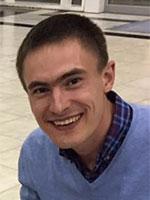 What is your name?
What is your name?
Sergey Yegorov
What is your current position?
Post-doctoral fellow
Which institute and country do you work in?
Institute for Infectious Diseases Research, Department of Biochemistry and Biomedical Sciences, McMaster University
What is your home country?
Canada
What are your research interests?
Immunological correlates of infectious disease
Tell us about yourself and your research interests:
I’m a Post-doctoral researcher in Dr. Matthew Miller’s laboratory at McMaster University. My current research explores the immunological correlates of viral infections and vaccine-elicited responses. Outside of academia, I have a passion for martial arts and love spending time in nature with friends and family.
What are your online profiles?
ResearchGate – Sergey Yegorov
LinkedIn – Sergey Yegorov
Impactstory –










